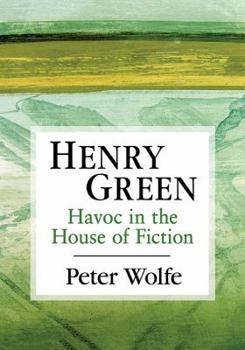Henry Green: Havoc in the House of Fiction
By mid-career, many successful writers have found a groove and their readers come to expect a familiar consistency and fidelity. Not so with Henry Green (1905-1973). He prefers uncertainty over reason and fragmentation over cohesion, and rarely lets the reader settle into a nice cozy read. Evil, he suggests, can be as instructive as good. Through Green's use of paradoxical and ambiguous language, his novels bring texture to the flatness of life,...
Format:Paperback
Language:English
ISBN:1476671117
ISBN13:9781476671116
Release Date:November 2017
Publisher:McFarland & Company
Length:258 Pages
Weight:1.60 lbs.
Dimensions:0.6" x 6.8" x 10.0"
Age Range:18 years and up
Grade Range:Postsecondary and higher
Customer Reviews
0 rating





